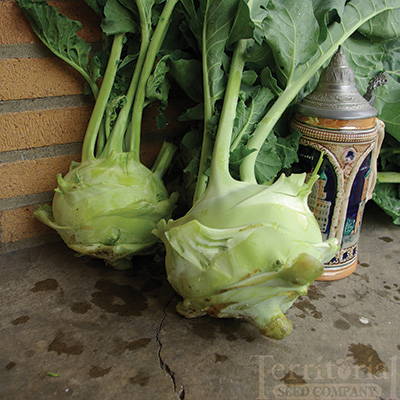Paul Kaiser coaxes a remarkable abundance from the two and a half acres he currently has in production at his Singing Frogs Farm in west Sebastopol, not far from Ragle Ranch Park. He operates a year round CSA subscription program with 120 members and attends four farmers markets, two of which are year round.
Kaiser also harvests what we think of as summer crops remarkably early. Every year, he has zucchini and other summer squashes and cucumbers in April and eggplant and tomatoes by June 1. This is accomplished, in part, by planting seedlings instead of seeds. Seeds are started in the farm’s nursery and by the time they go into ground, they are well established, past what we can call their infancy.
“The plants are so vigorous that they outpace the weeds from the time they go into the ground,” Kaiser says.
Tomatoes go into the ground in March, which defies the generally accepted wisdom that they should not be planted until after May 15, when the danger of frost has significantly declined. If it turns cold, Kaiser uses frost blankets to protect the plants.

Large kohlrabi, a different variety than the small ones, are easier to peel, delicious and refreshing.
His current harvest includes a new variety of kohlrabi. Instead of the familiar little rounds, these are enormous, larger than a softball. They are delicious, Kaiser explains, and don’t turn woody as quickly as the small ones. In addition, they are much easier to peel at this size.
There’s also mature Romanesco zucchini, with ridges that have already formed, along with several other varieties of zucchini and other summer squash, fennel, tatsoi, onions, carrots and beets. Baskets are filled with gorgeous lettuces, plump and delicate heads, including Panisse, a delicious Oak Leaf variety. There’s basil, scallions, a huge array of braising greens, cucumbers, arugula, potatoes and some of the first tomatoes, along with broccoli, yellow cauliflower and Romanesco cauliflower. Tomatoes and eggplant go quickly, but soon there will be an abundance, along with blueberries, green beans and sweet corn.
Singing Frogs Farm also produces eggs, though the flock recently moved to one of the farm’s employee’s land, which has allowed for an increase. There are now more than 500 laying hens and they spend all day every day on large fields of green grass. These eggs are an option for CSA members, who may also choose to add brown rice from Massa Organics and olive oil from B. R. Cohn.
Singing Frogs is a no-till farm and all labor is done by hand. According to Kaiser and many other experts, plowing and rototilling destroy soil, reducing its vitality and contributing to greenhouse gases in the process. In five years, organic matter in this soil has increased by 300 percent, a standard that far exceeds the best organic tilling systems, which promise a 25 percent increase in thirty years.
Kaiser’s fascination with soil comes, in part, from his pre-farming experience. He holds masters degrees in both Natural Resource Management and Sustainable Agriculture and refers to himself as a science geek. Before starting his farm with his wife Elizabeth Kaiser, Paul Kaiser rehabilitated degraded land and found ways to make it economically profitable for the landowners. Now he’s doing it on his own land.
Singing Frogs Farm, founded in 2007 and owned and operated by Paul and Elizabeth Kaiser, attends the Occidental Bohemian Farmers Market on Friday afternoon from 4 p.m. until dusk, Santa Rosa Original Certified Farmers Market (50 Mark West Springs Road) on Saturday from 8:30 a.m. to 1 p.m., the Sebastopol Farmers Market on Sunday from 10 a.m. to 2 p.m. and the West End Farmers Market on Sunday from 10 a.m. to 2 p.m. For information about the farm’s CSA and to request a farm visit or tour, email charlie@singingfrogsfarm or visit singingfrogsfarm.com.
Questions? Post them here, email me at michele@saladdresser.com or visit my personal web site at saladdresser.com

